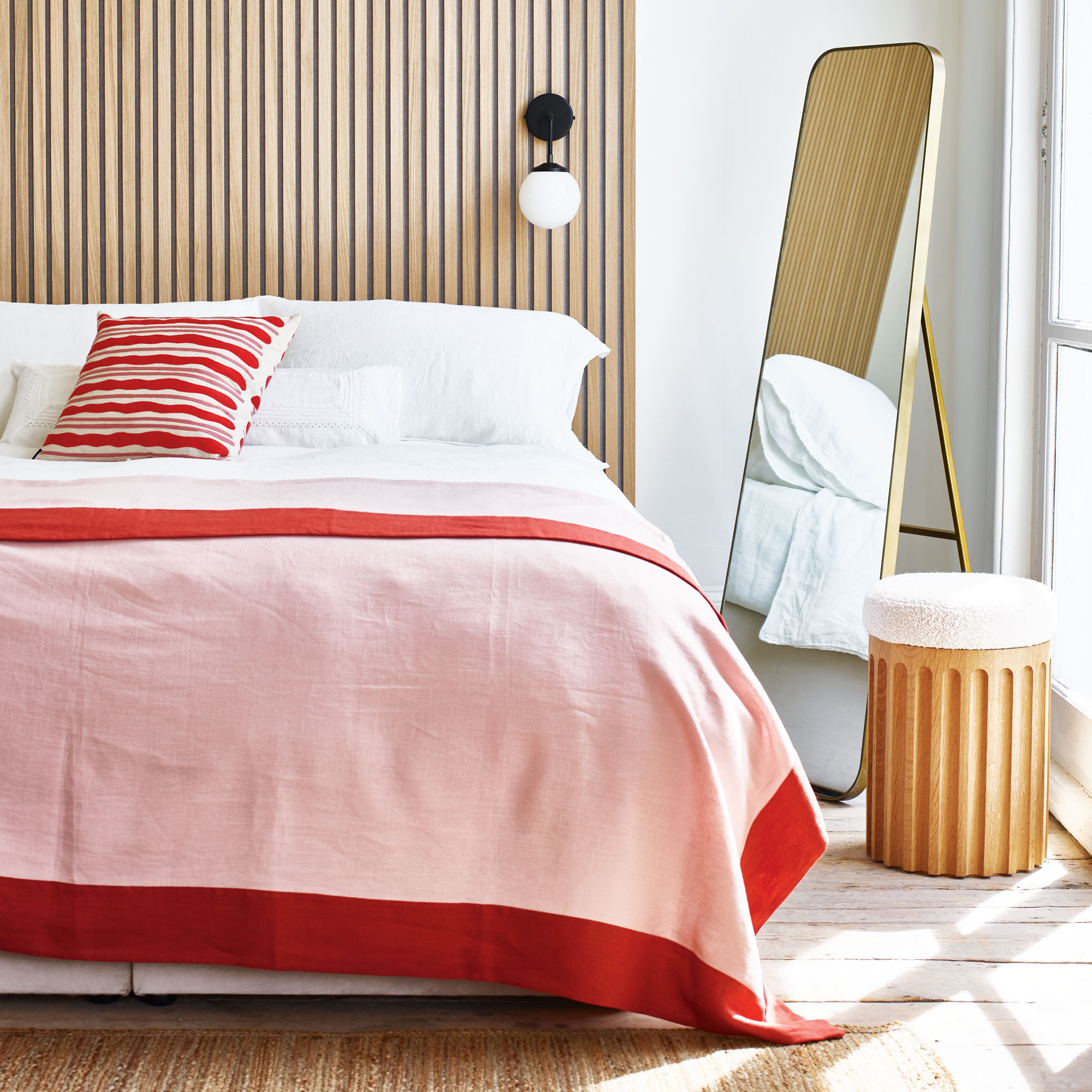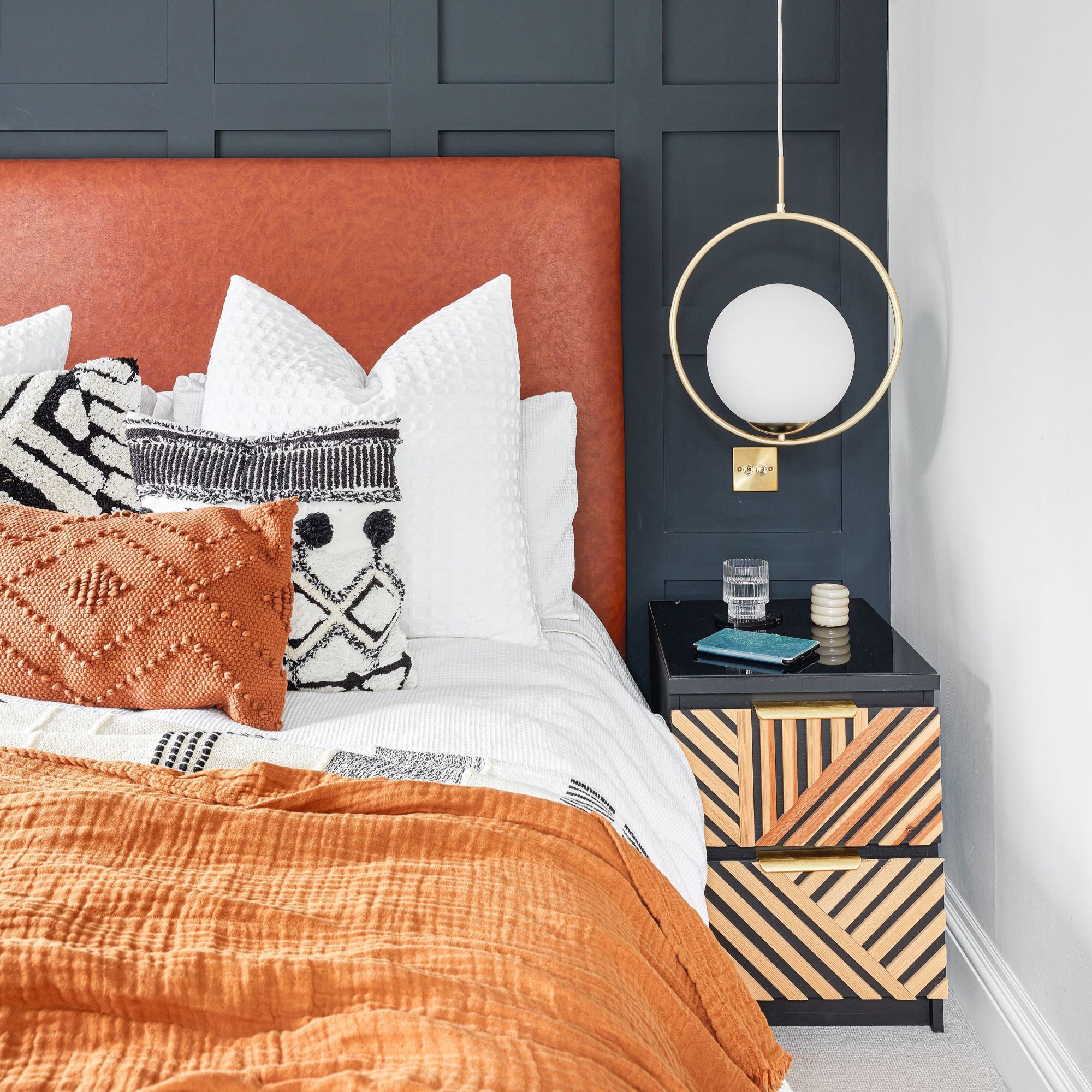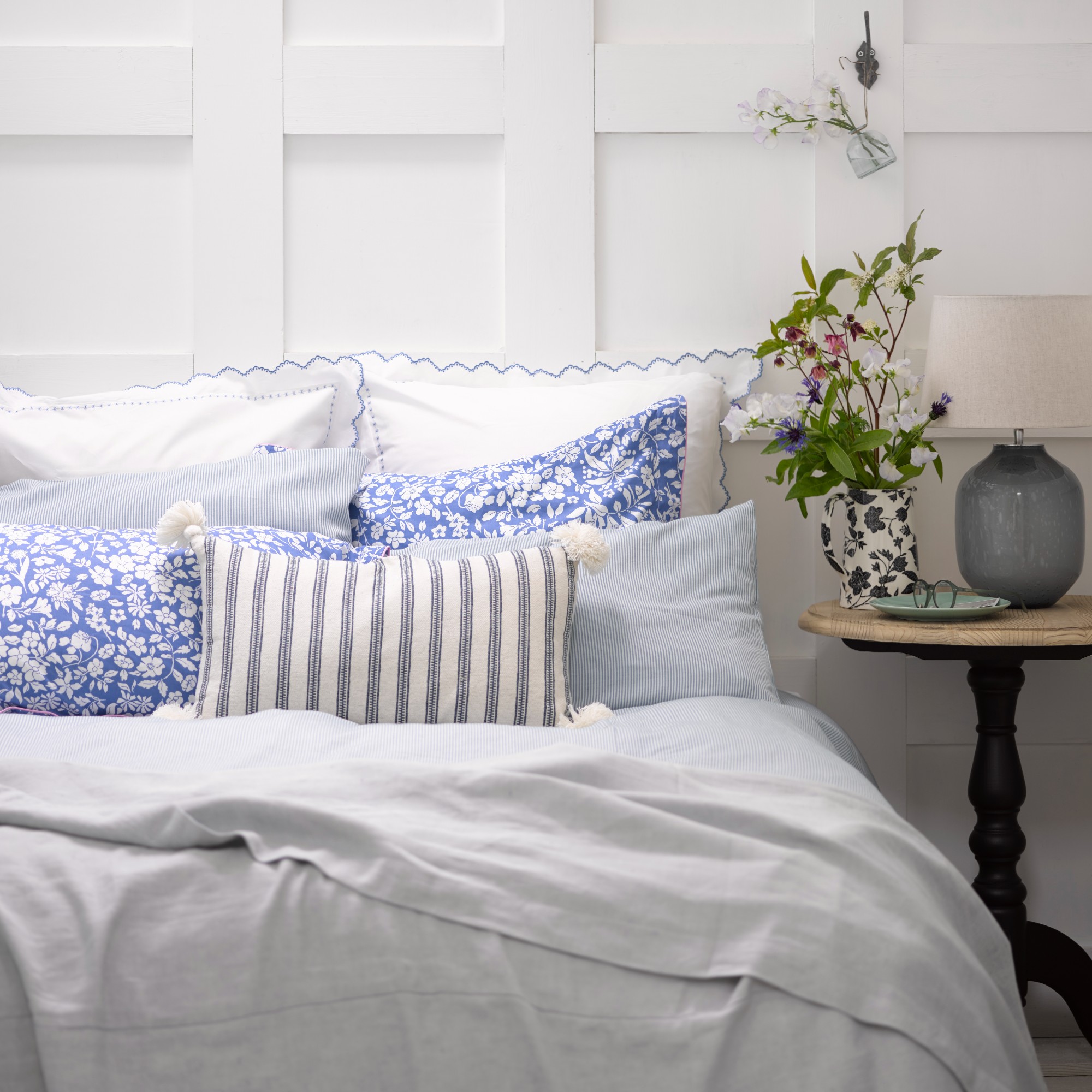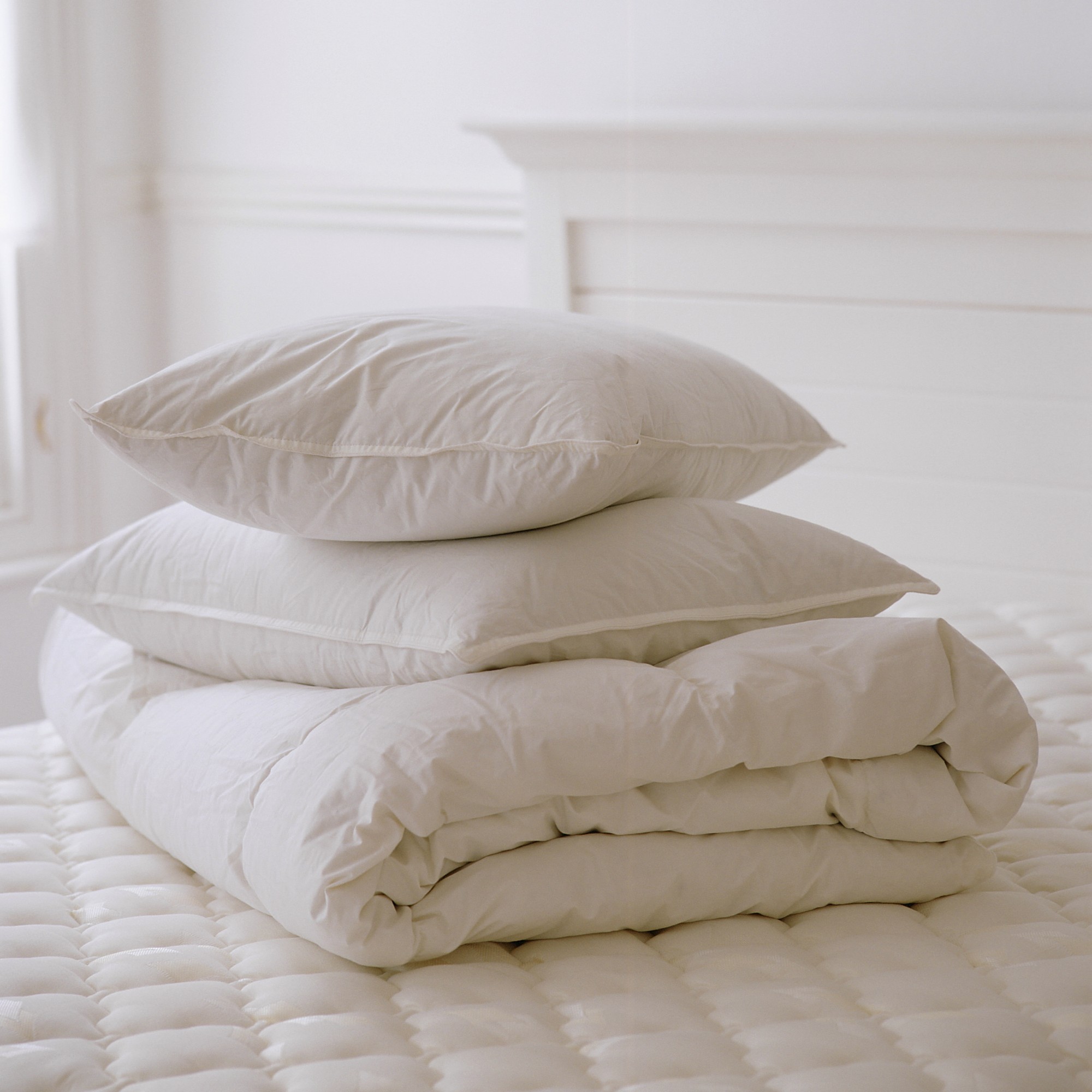
I may now be a sleep-product reviewer with thousands of hours of testing time under my belt, but I was once a rookie duvet buyer who came a cropper of many a duvet-buying mistake.
Now I know better, and I’m here to share my mistakes so you can avoid any pitfalls when buying your next duvet.
After all, there's an art to buying the best duvet. You need to think about filling, tog rating, size, and more.
Luckily along with my own extensive research, I've recruited some duvet experts to tell us all we need to know.
So let’s get into it. Here are all the duvet buying mistakes you definitely don’t want to make...
1. Focusing solely on price

We’ve all done it. We need something in a hurry and gone for the cheapest option. And it’s easy to see why this might happen if you’re buying a bed – you’ve just forked out a lot of money for a bed frame and the best mattress around, so you scrimp on the duvet. But you’ll live to regret it if you do, as this is one of the most basic duvet buying mistakes. Instead it’s best to buy the best duvet you can afford.
‘While budget is important, choosing a duvet solely based on its price can be a mistake. Cheaper duvets may save money initially but can lack the quality, comfort, or durability of more premium options,’ says Sally Bonser, sleep expert at Silentnight.
‘Buying a cheaper duvet may mean you could end up buying another duvet sooner than you’d hoped for. Investing in a higher-quality duvet can pay off in the long-run by providing longevity.’
So is an expensive duvet worth it? Yes, I definitely think so.
2. Not choosing the right fill for you

There are a lot of different duvet fillings to choose from. Don’t make the mistake I did when buying a duvet of not really understanding the difference between natural and synthetic duvets. You need to find the right type of fillings for you.
There are loads of natural-fibre duvets including bamboo (which is vegan friendly!), silk, wool, cotton and linen. These are all breathable, which is fantastic if you struggle to regulate your body temperature when you see, ie. you wake up a bit sweaty.
‘Natural fillings help breathability of your duvet, which ultimately expand its life span by keeping the filling fresh,’ says Jade Crooks, commercial director at DUSK.
However, some natural-fibre duvets can exacerbate allergies. Therefore, you might want to go for synthetic-fibre duvets. These are usual hollow fibre or microfibre – both are formats of polyester. These are fantastic at repelling dust mites – the main cause of allergies in the home. They are tend to be easier to wash, which leads us to…
3. Paying no attention to care instructions

Think about your lifestyle when it comes to your duvet. While a duvet isn’t quite as needy as a pet or child, they do still require some TLC. If you care for your duvet – including cleaning it – it should extend the lifespan dramatically – and just be fresher too.
But not all duvets are made the same, and not all care instructions are the same. Avoid duvet buying mistakes and make sure you go for a duvet you can keep clean.
‘One of the most frequent mistakes consumers make is not following the care instructions for the duvet,’ says Sally from Silentnight. Some duvets require gentle washing, specific detergents, or professional dry cleaning.'
'Washing a duvet incorrectly can damage its filling, reduce its fluffiness, and decrease its lifespan, so you should always check the care label and follow the manufacturer’s guidelines to keep your duvet in top condition.’
4. Buying the wrong size duvet

Maybe it seems obvious, but you’d be surprised. Always triple check you’re buying the right-sized duvet for your bed.
‘The size of your bed might seem like an easy thing to consider, however, it’s one of the most common duvet buying mistakes that believing matching the duvet size to the bed size is enough,’ says Jade from DUSK.
‘You instead should consider the need for duvet coverage, especially if sharing a bed with a partner. A duvet that is too small for two can cause restless nights and fighting over the covers.’
We’ll come on to whether to get an oversize duvet further down this article.
5. Not thinking about the season

Your duvet needs to last you the whole year round, and as we all know in the UK, the temperature is variable. If you buy one duvet, you might find it’s great in summer; it just doesn’t cut the mustard on cold winter’s nights. That's why considering your duvet tog is important, more on that below.
‘One of the biggest mistakes people make when it comes to bedding is using a duvet that doesn’t match the season’ says Jade from DUSK. ‘Whilst this is good for saving space within your home, it’s not suitable for the changing temperatures throughout the course of a year.’
‘If you are buying a duvet, consider what season you are going to use it in,’ says Jade. ‘If the weather is warmer, you are going to want to opt for something breathable and lightweight. However, if your duvet is going to be used during the colder months, you’ll need one that is going to offer the best insulation.'
‘If space is an issue in your home, you could opt for an all-seasons duvet. These are made up of two lighter-weight duvets that are fastened together with buttons.’ If you're switching between the two, however, also pay attention to the best time to change between your winter and summer duvets.
6. Not paying enough attention to the tog rating

I can’t emphasise this enough: do a deep dive into what tog rating is best for you. The tog rating is going to massively impact the quality of your sleep.
‘Selecting the wrong tog is often one of the duvet buying mistakes,’ says Olivia Shykles, filled bedding buyer at John Lewis. ‘There can be confusion around what it means and therefore which to select.'
‘Your temperature at night can have a significant impact on not only falling asleep but the quality of that sleep. More commonly people can feel too hot at night but feeling chilly can have as much of an impact when trying to drift off.'
‘Tog stands for "Thermal Overall Grade". A duvet's tog rating is important as it relates to its warmth (but not its weight, which depends on filling). Simply put, the higher the tog rating the warmer the duvet.’
7. Not making the most of a sleep trial

Not all duvet retailers offer one, but if the duvet your eyeing up does, it's well worth making the most of any sleep trials on offer.
A sleep trial enables you to test out a duvet at home, sleeping under it for anywhere from between 14 to 30 nights to see if it improves your sleep and suits your sleep requirements.
Terms and condtitions will apply, but if you don't get on with the duvet, you can usually return it for a full refund during a sleep trial.
As of writing, Simba (best known for its synthetic duvets), scooms (luxury feather and down duvets), and Woolroom (breathable wool-filled duvets) all offer sleep trials on their bestselling duvets.
Our favourite duvets
These are some of our absolute favourite duvets to help you along your duvet buying journey.
We crowned this our 'Best Summer Duvet' thanks to its lightweight Tog, breathability and luxurious fill.
This option is super cosy for winter, but is actually two duvets in one, so if there's a mild patch in autumn you can take off some of the weight.
Our 'Best All Season Duvet' can not only be adapted to work in cold or warm weather, but washes easily and is delightfully quick to dry, too.
FAQs
Should I size up when buying a duvet?
By sizing up your duvet, we mean getting a duvet that’s at least one size up from your mattress size – a kingsize duvet on a double bed, for example. This entirely a personal preference thing, but many couples find it stops the disagreements other duvet theft…
‘A great hack is to buy a duvet a size larger than your bed, this will not only ensure you have plenty of covers to keep warm but will prevent any nighttime tussles over them, allowing for a more peaceful sleep,’ says Jade from DUSK.
What tog duvet do hotels use?
If anyone knows duvets, it’s the hotel industry. They juggle the problem of finding the right duvet on an epic scale.
Some hotels kindly let us know what duvets they’ve plumped for. ‘We have 10.5 tog Savoy duvets for all seasons,’ says Vicky Bielinski, assistant executive housekeeper at The Grove.
And Marine & Lawn Hotels & Resorts, who offer luxury stays beside the world's most prestigious golf courses in Scotland and Northern Ireland, say their duvets are 10.5 tog.
It seems most hotels err on the side of caution and go for a middle ground on the tog factor.







